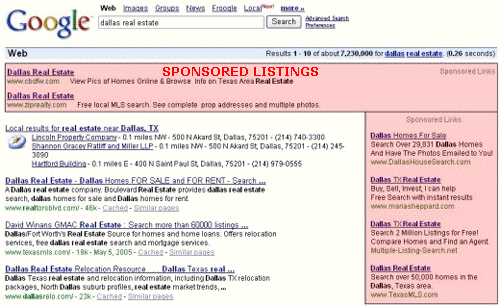
If you ask anyone, what is Google? Most people would respond by saying that it is just a search engine website. However, Google is much more than just a search engine website. Google has established from a search engine to a business powerhouse that millions of people use on a daily basis. Google’s success is largely due to its huge popularity. As a result of being so popular, companies, organizations, corporations, and almost every type of business knew it could benefit from Google. Google used E-commerce by allowing certain websites to be “featured” at the very top of your search query. For example, if you were to type in certain common goods or services available to be purchased online, you would find that one or two websites will be highlighted in blue at the top of the page. These sites are their sponsored links. Also, along the right hand side, there will be even more sponsored links posted. For instance, if you were to type in “Clothing” as your search query, you would find that such websites as Macys.com, Nordstrom.com, and Target.com come up as sponsored links.
The internet business model that Google uses is Business to Business. However, it can be seen as Business to Consumer because many people use Google as a means of finding a certain website to purchase something. It uses Business to Business because other businesses pay Google to be featured as “sponsored links” at the top and right hand side of the search query. Google's top line and bottom line initiatives are already working as efficiently as they can. Also Google is pursuing new streams of revenue everyday.
Among the Five Forces Model, Supplier Power is among the most powerful forces. Although there are many search engine websites, Google is the most powerful and popular one. Businesses tend to prefer to be featured on Google because of its popularity. For this reason, Buyer Power is not very powerful. The threat of substitute products or services is always there for Google. There are numerous search engine websites that people can use, such as Yahoo, AOL search, and MSN search. However these websites offer so many other products and services that most people don’t think of these websites as search engines. The threat of new entrants is extremely low. Google is extremely popular and it would be very difficult for a new company or a new search engine to begin giving Google competition. Rivalry among existing competitors is also relatively low. Again, there are several other search engine websites, however, the competition is very low and Google stands alone with almost no competition.


